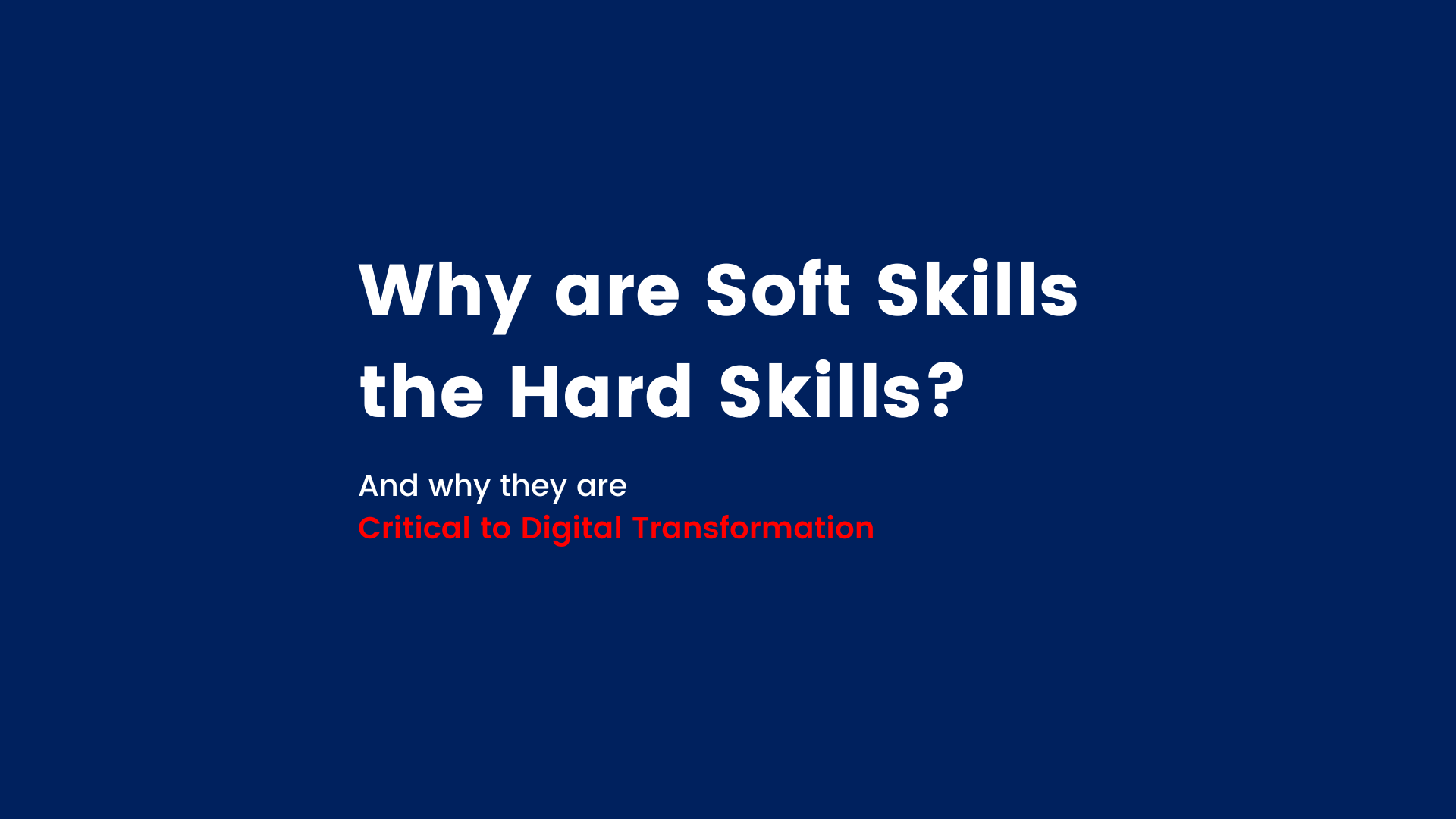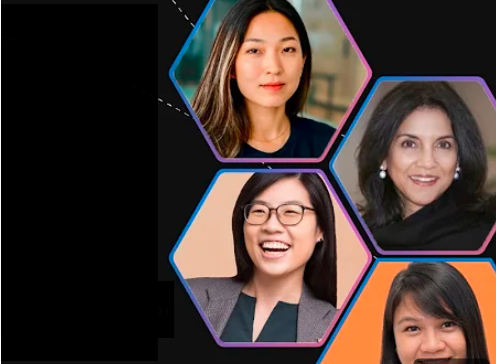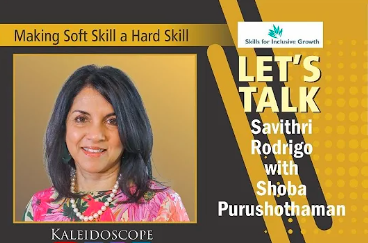
The misnomer of the term Soft Skills has been getting a lot of attention lately with Susan David, Matt Sigelman, Tze Chin Ong and Jaanvi (JC) Chawra joining Simon Sinek in questioning the term.
Digital transformation has accelerated this view since organizations globally are recognizing that the biggest challenge to Digitalization and business Transformation is not technology but how to develop human behaviors, skills and mindset critical to making change actually happen.
When we founded HARDSKILLS, we chose our name deliberately because our entire mission is to help organizations train their teams in the hard-to-teach skills such as Critical Thinking, Focus, ability to Influence, Collaborating with Agility, being open to diverse views and becoming more Inclusive, etc. And we wanted to do this in a way that ensured those Behaviours Stick.
In other words, training that teaches these skills so that they are retained and measurably improve the individual, team and enterprise performance.
Why is Hard Skills a better term than Soft Skills?
This is the crux of the matter and, why so many expert observers and influential thinkers write with such passion that soft skills is a misnomer.
These are behavioural skills, and we all know that human beings don’t change behaviour easily. Most managers know how difficult these skills and mindsets are to train and develop.
They can be taught effectively but there is no magic bullet or short cut to inculcating those skills so they can be retrieved and practised as professional behaviours.
Excellence with any skill be it in medicine, law, engineering, or cooking etc requires focus, and applied engagement of cognitive pathways over time.
Yet short term, quick-fix thinking continues to pervade organizations, who in their desire to develop “learning” often default to approaches based on the false assumption that “content” will do the job to training such skills.
These approaches range from 1–2-day seminars, access to digital content libraries, zoom meets, town halls and “learning weeks” where a succession of really good speakers are presented to learners.
But, while these all will add some value, particularly to the most motivated section of a workforce, they will not train behaviours that stick.
That is because to train and inculcate behaviours that stick, and that are retrievable over the long term requires engaging the brain, specifically the long-term memory of the learner multiple times and in different ways over time to cognitively link the new approach, skill or behaviour to the individual experience of the learner.
ALL the proven science on how adults learn confirms this.
But most managers, leaders and learning functions within enterprises do not pay sufficient attention to the science of learning. They opt for the easier path of ignoring the hard work needed to underpin learning on science.
This is now slowly changing as forward-thinking organizations realise that without understanding the science behind learning they’re not going to be able to achieve the often-cited “transformations” that their leadership are demanding.
Workforces need Training that is intentional and outcome-driven. The majority of corporate training and learning remains in large part passive, and unmeasured.
Given that 7 out of the key skills being demanded by enterprises (OECD) are behavioural skills such as Critical Thinking, Problem Solving & Inclusion, whether they be called soft skills, Human skills, critical core skills or Hardskills the biggest question is how to crack the problem of effectively training this so new behaviours take hold?
Cognitive interactivity with the learners is vital but so is structuring training with Context.
Our data, from training thousands of learners these skills across 50 countries, definitively shows that competency-based interventions of training just one component skill such as Collaboration make no sense if the interrelated skills of Communication and Self-Awareness and the context for how they work together aren’t also trained. This Context is often absent from learning design based on narrow competency-based frameworks.
Working closely with our clients we’ve set out to build a strategic learning experience that delivers the most important, interrelated Behavioural Building Blocks for High-Performance, valid across all levels in a team in a way that the Behaviours Stick.
These are in our view the real HARDSKILLS!

Why are Soft Skills the Hard Skills
The misnomer of the term Soft Skills has been getting a lot of attention lately with Susan David, Matt Sigelman, Tze Chin Ong and Jaanvi (JC) Chawra joining Simon Sinek in questioning the term.
Digital transformation has accelerated this view since organizations globally are recognizing that the biggest challenge to Digitalization and business Transformation is not technology but how to develop human behaviors, skills and mindset critical to making change actually happen.
When we founded HARDSKILLS, we chose our name deliberately because our entire mission is to help organizations train their teams in the hard-to-teach skills such as Critical Thinking, Focus, ability to Influence, Collaborating with Agility, being open to diverse views and becoming more Inclusive, etc. And we wanted to do this in a way that ensured those Behaviours Stick.
In other words, training that teaches these skills so that they are retained and measurably improve the individual, team and enterprise performance.
Why is Hard Skills a better term than Soft Skills?
This is the crux of the matter and, why so many expert observers and influential thinkers write with such passion that soft skills is a misnomer.
These are behavioural skills, and we all know that human beings don’t change behaviour easily. Most managers know how difficult these skills and mindsets are to train and develop.
They can be taught effectively but there is no magic bullet or short cut to inculcating those skills so they can be retrieved and practised as professional behaviours.
Excellence with any skill be it in medicine, law, engineering, or cooking etc requires focus, and applied engagement of cognitive pathways over time.
Yet short term, quick-fix thinking continues to pervade organizations, who in their desire to develop “learning” often default to approaches based on the false assumption that “content” will do the job to training such skills.
These approaches range from 1–2-day seminars, access to digital content libraries, zoom meets, town halls and “learning weeks” where a succession of really good speakers are presented to learners.
But, while these all will add some value, particularly to the most motivated section of a workforce, they will not train behaviours that stick.
That is because to train and inculcate behaviours that stick, and that are retrievable over the long term requires engaging the brain, specifically the long-term memory of the learner multiple times and in different ways over time to cognitively link the new approach, skill or behaviour to the individual experience of the learner.
ALL the proven science on how adults learn confirms this.
But most managers, leaders and learning functions within enterprises do not pay sufficient attention to the science of learning. They opt for the easier path of ignoring the hard work needed to underpin learning on science.
This is now slowly changing as forward-thinking organizations realise that without understanding the science behind learning they’re not going to be able to achieve the often-cited “transformations” that their leadership are demanding.
Workforces need Training that is intentional and outcome-driven. The majority of corporate training and learning remains in large part passive, and unmeasured.
Given that 7 out of the key skills being demanded by enterprises (OECD) are behavioural skills such as Critical Thinking, Problem Solving & Inclusion, whether they be called soft skills, Human skills, critical core skills or Hardskills the biggest question is how to crack the problem of effectively training this so new behaviours take hold?
Cognitive interactivity with the learners is vital but so is structuring training with Context.
Our data, from training thousands of learners these skills across 50 countries, definitively shows that competency-based interventions of training just one component skill such as Collaboration make no sense if the interrelated skills of Communication and Self-Awareness and the context for how they work together aren’t also trained. This Context is often absent from learning design based on narrow competency-based frameworks.
Working closely with our clients we’ve set out to build a strategic learning experience that delivers the most important, interrelated Behavioural Building Blocks for High-Performance, valid across all levels in a team in a way that the Behaviours Stick.
These are in our view the real HARDSKILLS!





.png)


